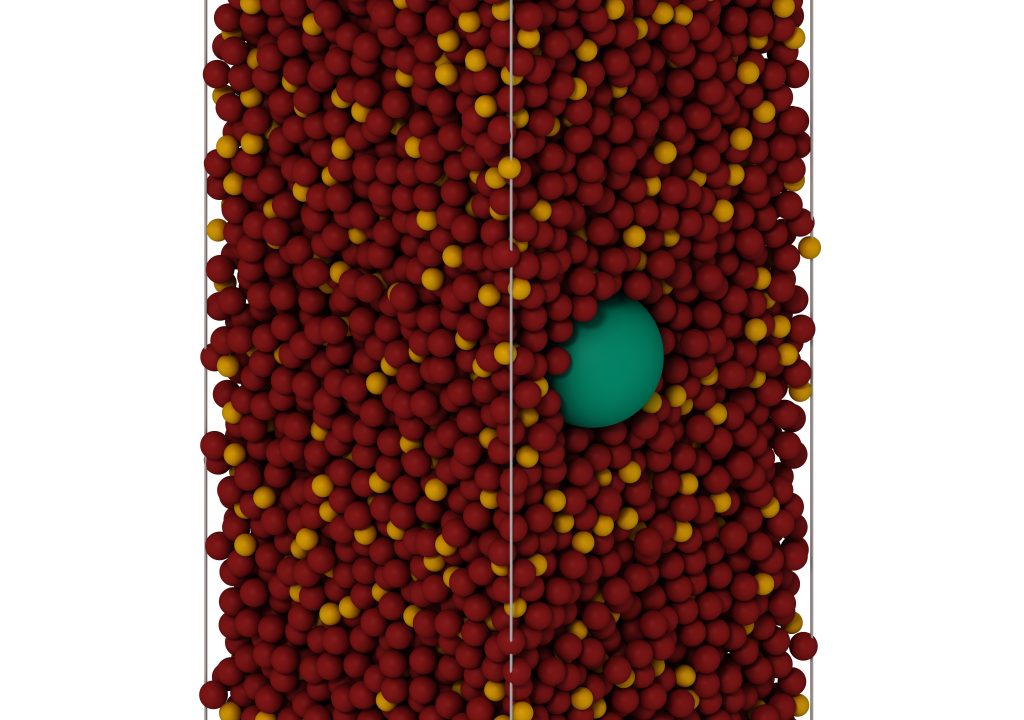
The glass transition remains unclarified in condensed matter physics. Investigating the mechanical properties of glass is challenging because any global deformation that might result in shear rejuvenation would require a prohibitively long relaxation time. Moreover, glass is well known to be heterogeneous, and a global perturbation would prevent exploration of local mechanical/transport properties. However, investigation based on a local probe, i.e., microrheology, may overcome these problems. Here, we establish active microrheology of a bulk metallic glass, via a probe particle driven into host medium glass. This technique is amenable to experimental investigations via nanoindentation tests. We provide distinct evidence of a strong relationship between the microscopic dynamics of the probe particle and the macroscopic properties of the host medium glass. These findings establish active microrheology as a promising technique for investigating the local properties of bulk metallic glass.